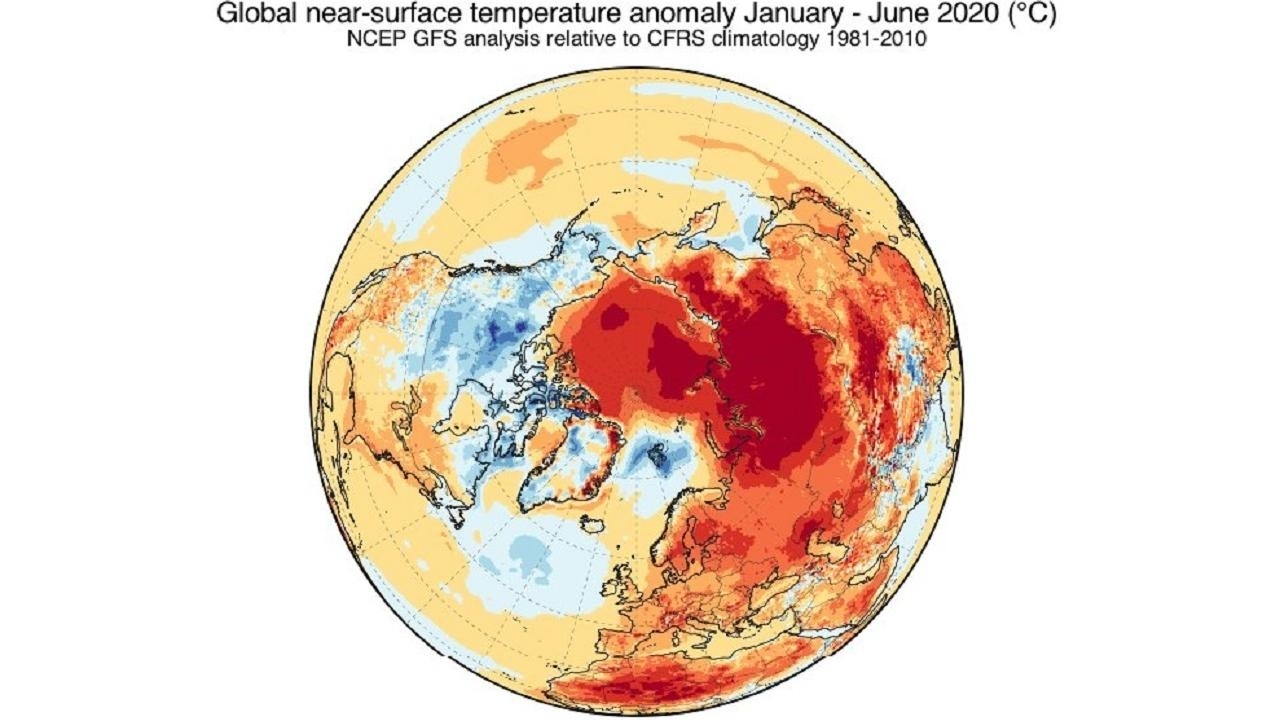The chilling global impact of Siberias record heatwave

Temperatures in Russias Arctic Siberian region climbed to record highs in June, sparking a disastrous snowball effect of forest fires, thawing permafrost and oil spills.
Advertising
Read more
The most chilling phenomenon in Siberia this season has been the heat. A series of warnings, reports and studies over the past few weeks have raised alarm bells over the record temperatures in the vast Russian region spanning much of Eurasia and Northern Asia.
The latest report, produced by a collaboration of scientific teams from France, Germany, Netherlands, Russia, Switzerland and Britain and released Wednesday by the World Weather Attribution project, has provided the strongest signal so far of the effects of global warming on Siberia.
The study concluded that Siberias record-breaking heatwave would have been “virtually impossible without human-induced climate change”.
The June heatwave during the second half of the month brought the monthly average temperatures in some parts of Arctic Siberia to as high as 10 degrees Celsius above normal, according to the European Copernicus Climate Change Service.
“In addition, the average monthly temperature over the entire area was more than 5°C higher than usual, which breaks the record for the previous two warmest Junes – 2018 and 2019,” the study said.
The record was set in the small town of Verkhoyansk, near the Arctic Circle, known to be one of the coldest places on Earth. On June 20, 2020, the mercury hit 38 degrees Celsius, which the Russian Meteorological Service said was the highest ever recorded north of the Arctic circle. The World Meteorological Organization has said it is carrying out its own research to verify this.
The extreme heat wave in the Russian region is "probably the most significant weather event of the year", said Mika Rantanen, a researcher at the Finnish Meteorological Institute, on Twitter. In an interview with FRANCE 24, Rantanen explained that it was a long-term phenomenon since "it started in winter".
The extreme heat in Siberia has been arguably the most remarkable weather event in the world by far in 2020.
According to the latest ERA5 data, some places have been 8°C warmer than normal during the first half of the year. pic.twitter.com/FnRIV5GVko
— Mika Rantanen (@mikarantane) July 5, 2020
Thermal energy not absorbed by snow
Scientists however are not surprised by the temperature variations over this vast area of 13 million square kilometres, which accounts for 77 percent of Russia's area and is larger than Canada. They have long known that temperatures are rising faster because of warm ocean currents that melt snow.
This year, however, in addition to global warming, climatologists have noted two natural factors that have accentuated the heat spike. First, an unusually strong polar vortex over the North Pole has created a mild climate over the entire area. In addition, a high-pressure system in June favoured the rise in temperatures.
"As it was already warm in spring, the snow cover melted earlier than usual," said Rantanen. “So the heat energy in summer has not been consumed into melting of snow and ice. This resulted in record temperatures.”
While noting that, "We don't know yet if this is just a one-year event or the beginning of something completely new," Rantanen warned that "it will be worrying if the conditions continue like this".
Wildfires, invasive insects, disappearing forests
The record Arctic heatwave has major consequences for global warming. Massive forest fires have engulfed the area, with more than 275,000 hectares going up in smoke in the vast Sakha region in northeastern Siberia, according to the Russian government forestry agency.
The number and intensity of the wildfires resulted in “an estimated total of 59 megatonnes of CO2” emissions in the atmosphere, according to the Copernicus Climate Change Service, which is a record since measurements began in 2003.
Although the intensity of the fires decreased in mid-July, 159 fires are still active and threaten 333,000 hectares. Based on satellite data, Greenpeace's forest monitoring service in Russia estimates that around 9.26 million hectares have been affRead More – Source
[contf]
[contfnew]

france24
[contfnewc]
[contfnewc]



